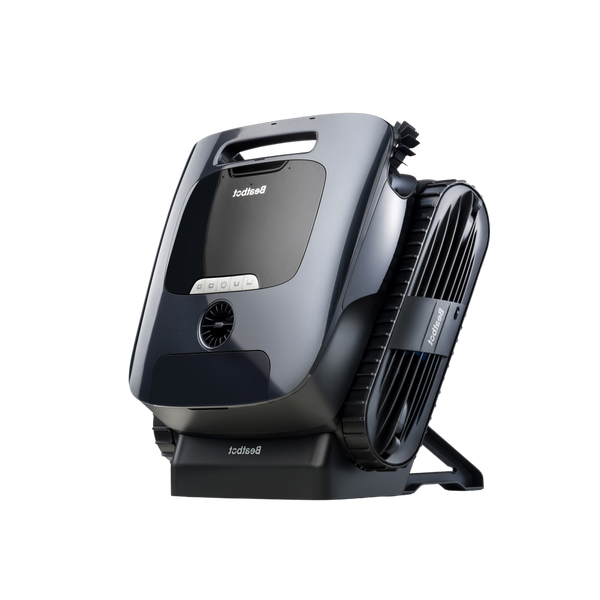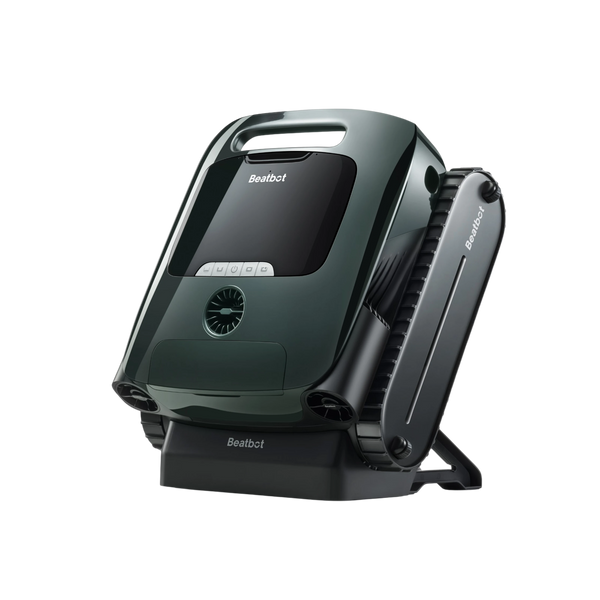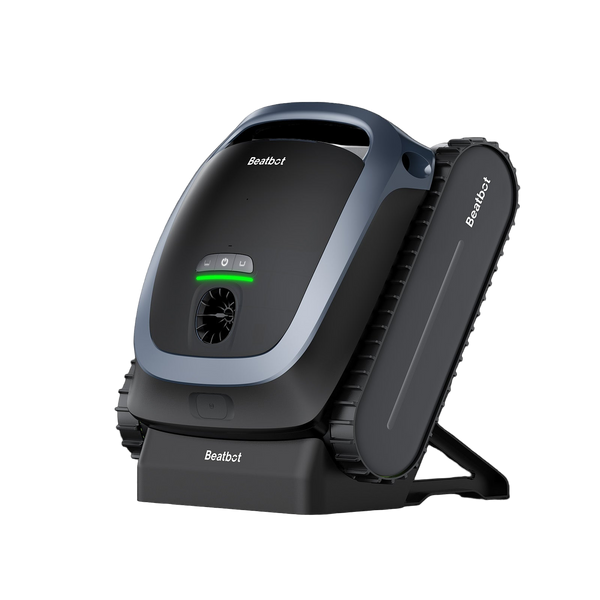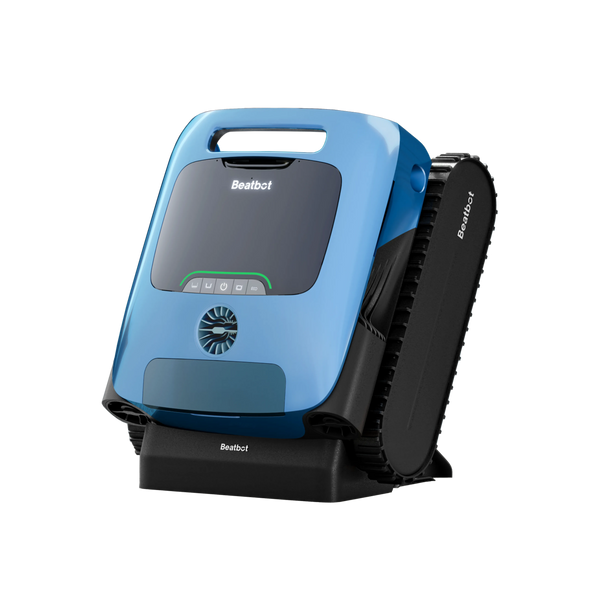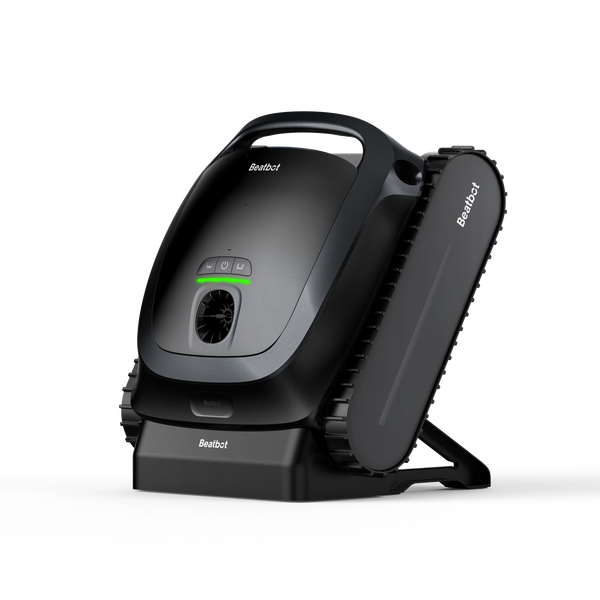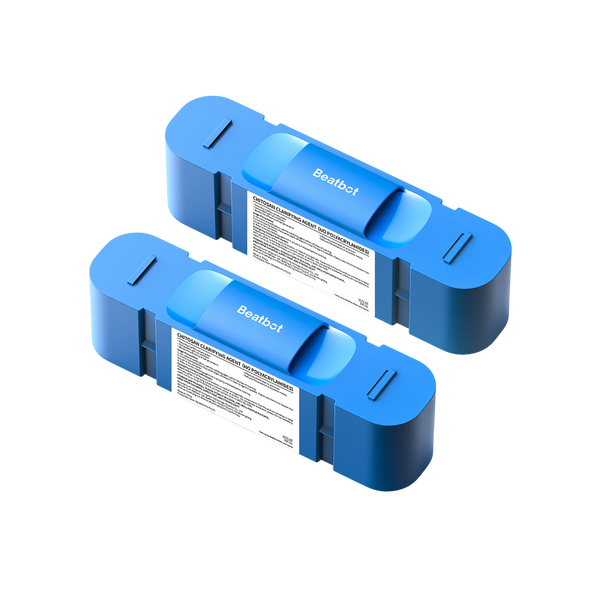Defending Against Cicadas: Protecting Your Backyard and Poo
2025-05-25
As spring approaches, so does the emergence of cicadas. The spring of 2024 is particularly notable, with trillions of cicadas expected across the east of America. The sudden appearance of so many cicadas creates a loud, pervasive buzzing sound and impacts local ecosystems and human activities, including gardening and pool maintenance. How should we care for our pools and protect backyards during this period? This blog will explore essential measures and tips to maintain a safe environment amidst the cicada surge.
Table of contents
Knowing the Cicada Apocalypse
Why Cicada Boom In this Spring
There are two types of cicadas: annual (or "dog-day") cicadas and periodical cicadas. The periodical cicadas are especially famous for their synchronized life cycles, culminating in massive emergences every 13 or 17 years. The "cicada boom" in the spring of 2024 marks the mass emergence of periodical cicadas.
This phenomenon is due to periodic cicadas maturing underground for nearly two decades before synchronously surfacing. This strategy, known as predator satiation, ensures their survival by overwhelming predators with their sheer numbers. This event is significant in certain eastern U.S. states, affecting local ecosystems and activities like pool maintenance during their short adult phase.
Understanding the Cicada Lifecycle
Cicadas, members of the insect order Hemiptera, spend the majority of their lives underground as nymphs, feeding on tree roots. This underground phase can last for either 13 or 17 years, depending on the species. When the time is right, typically when the ground temperature reaches 64 degrees at 8 inches deep, they emerge en masse to molt, mate, and lay eggs.
Nymph Stage : During this stage, cicadas feed on the sap from tree roots, which can sometimes stress the trees but usually does not cause significant harm.
Emergence : Once the cicadas surface, they will molt into their adult form. The adult cicadas live for only a few weeks, during which time they are highly active.
Reproduction : Female cicadas create slits in tree branches to lay their eggs. These eggs hatch, and the young cicadas drop to the ground to begin their long nymph phase anew.
Impact on Trees and Vegetation
While cicadas are not directly harmful to humans, their egg-laying process can be detrimental to young trees and shrubs. The slits made in branches can cause structural damage, leading to a phenomenon known as "flagging," where branches die back. This can be particularly problematic for orchards and newly planted trees.
Understanding the lifecycle and behavior of cicadas helps us anticipate their impact on local environments and prepare accordingly, whether it's protecting young trees or simply enjoying the unique spectacle they bring to our natural world.

What Are the Main Features of Cicadas?
☆ Not toxic
☆ Don't bite or sting
☆ Cover saplings/ new trees
☆ Good for the soil
☆ valuable food source for wildlife
☆ Pesticides are not normally effective
☆ emerge when the soil reaches 64ºF in early April or May, die in late June in the USA
Signs of Cicada Activity to Monitor in Trees and Shrubs
When keeping an eye out for cicada activity in your trees and shrubs, there are a few key indicators to monitor. Recognizing these signs early can help you take action before any significant damage occurs. Here's what to look for:
Splitting Bark
Cicadas often cause the bark of trees and shrubs to split. This happens as the female cicada lays her eggs, which can lead to noticeable damage.Yellowing Leaves
Another indicator is the yellowing of leaves. This discoloration may suggest that cicadas have been feeding on the plant, disrupting its health.Sap Oozing
Monitor for any sap oozing from the branches. This could be a result of cicadas puncturing the plant tissues.Twig Dieback
Look for small branches or twigs dying off unexpectedly. This 'flagging' is common after cicadas lay eggs on the tips of branches.Visible Nymph Shells
Finally, you might spot empty nymph shells clinging to the tree trunks or branches, which are left behind as cicadas transition to their adult form.
By keeping these signs in mind, you can take proactive steps to safeguard your greenery from the potential damage caused by cicadas.
How to Keep Cicadas Out of My Backyards and Pool
Choosing the Right Landscaping
☆ Non-Preferred Trees and Plants
Cicadas typically prefer deciduous trees like oak, maple, and ash for laying eggs. You can reduce their presence by landscaping with less attractive options to cicadas, such as coniferous trees (e.g., pines and firs) or certain shrubs that do not appeal to cicadas.
☆ Herbal and Aromatic Plants
Planting strong-scented herbs and flowers can also deter cicadas. Add garlic, marigolds, and lavender around your garden and outdoor living spaces to keep cicadas at bay.
How Mulching Discourages Cicadas from Laying Eggs
Mulching can be an effective strategy in deterring cicadas from settling in your garden. Here’s how it works:
Creates a Physical Barrier : A substantial layer of mulch around the base of your trees and throughout garden beds acts as a physical barrier. This makes it challenging for cicadas to access the soil where they typically lay their eggs.
Deterred Egg-Laying : Cicada females usually lay their eggs in twigs and branches, and some nymphs fall to the ground to burrow. With a thick mulch cover, the process of burrowing becomes difficult, thus disrupting their life cycle.
Protects Tree Roots : By hindering the cicada nymphs' access to the soil, mulch helps prevent these nymphs from reaching tree roots, which they feed on to survive and grow to adulthood.
In essence, employing mulch in your gardening practices can significantly reduce the chances of these insects laying eggs, thereby lowering the potential cicada population in your area.
Barriers and Physical Preventatives
☆ Fine Mesh Netting
Install fine mesh netting over trees and shrubs, especially those that cicadas prefer for laying eggs.
☆ Physical Exclusions for Young Trees
For younger trees, which are more vulnerable to cicada damage, use tree wraps or cicada netting sleeves that encase the trunk and lower branches.
☆ Garden Enclosures
Consider enclosing vegetable gardens or flower beds with cicada-proof netting.
☆ Window and Door Screens
Please make sure that all windows and doors that open to patios or gardens are equipped with well-fitted screens to keep cicadas out of your home during their peak activity.
Timing Outdoor Lighting Wisely
It's effective to adjust your outdoor lighting to minimize cicada attraction to your yard. Reducing light pollution by switching to yellow or warm LED lights can make a significant difference, as these are less appealing to cicadas.
Consider using motion sensor lights that only activate when necessary, and strategically place lights away from areas you spend time, directing them towards the yard's perimeter instead.
Using A Pool Cover
Using a pool cover is a simple and effective way to keep cicadas and other debris out of your pool. By covering your pool when it's not in use, especially overnight, you can significantly reduce the amount of cicada intrusion and maintain cleaner water. Pool covers help keep cicadas out, minimize evaporation, and maintain water temperature, making them beneficial for overall pool maintenance.
Maintain Swimming Pool During Cicadas Season
Get Rid of Cicada Carcasses effortlessly With Our Robotic Pool Cleaner
As the world's first 5-in-1 swimming pool robot cleaner, the AquaSense 2 Pro combines water clarification functions with cleaning the water surface, waterline, walls, and floor, redefining intelligent pool care with cutting-edge technology.
It features a powerful suction system and large-capacity filter baskets specifically designed to handle various types of debris, including the cicada carcasses floating on the water surface.
The AquaSense Pro operates autonomously, using smart mapping technology to ensure no spot is missed. Regular use of AquaSense Pro during the cicada season will keep your pool water clean and clear, significantly reducing the need for manual cleaning efforts.

Beatbot AquaSense 2 Pro
The world's 1st 5-in-1 cleaning robot(Clarification,Surface,Waterline,Walls,Floor)
Enhanced Filtration and Circulation
Enhancing your pool's filtration and circulation systems is crucial for maintaining clean and healthy water. Improved filtration involves using high-efficiency filters that can trap smaller particles, including cicada debris, ensuring the water remains clear.
Optimizing circulation by adjusting the pool pumps and ensuring that water flows through all parts of the pool prevents stagnation and promotes even distribution of chemicals. An efficient pool cleaner pro like AquaSense Pro is also instrumental in significantly aiding water clarification.
Chemical Balance Management
Proper management of chemical levels in your pool is essential for ensuring water safety and clarity, especially during periods of increased use and contamination, such as a cicada boom.
Regularly testing and adjusting pH levels, chlorine concentrations, and other necessary chemicals help prevent algae growth and bacterial contamination.
Professional Cleaning Services
Consider hiring professional pool cleaning services for heavy cicada infestations or if the above methods prove insufficient. They can provide deep cleaning and more thorough maintenance that might be required to restore your pool's condition fully.
Is it Advisable to Plant Trees During Cicada Season, and What Precautions Should Be Taken?
Planting trees during cicada season can raise concerns for many gardeners. However, the good news is that the potential damage caused by cicadas is generally minor and shouldn't deter spring planting efforts.
Why You Can Plant in Spring
- Tree Resilience : Large trees typically withstand any small amount of damage from cicadas, such as minor branch dieback. For most trees, this isn’t a significant issue.
- Optimal Growing Season : Spring remains the ideal time for planting. Trees establish their root systems most effectively during this period, ensuring healthy growth.
Precautions for Young or Small Trees
While larger trees are usually unharmed, smaller or newly planted trees may benefit from a few precautionary measures:
- Netting : Consider using protective netting over small trees. This acts as a barrier during the cicadas' egg-laying period, which lasts around 4-6 weeks.
- Timing : Some sources recommend delaying planting until fall if you are particularly concerned. However, with proper protection, spring planting is still feasible.
Final Reassurances
Even if some damage occurs, most trees are resilient enough to recover promptly. By following the above precautions, your new trees should thrive delightfully despite the buzzing visitors. Embrace the spring planting season with confidence!
Safety Tips: Insecticides Using
Type of Insecticide
Not all insecticides are equally effective against cicadas. Contact insecticides, which kill insects upon direct contact, can be used to treat areas where cicadas are abundant.
However, systemic insecticides, which are absorbed by plants and then ingested by the insects feeding on those plants, are generally ineffective because adult cicadas do not feed on leaves but on plant sap.
Timing of Application
Insecticides are more effective if applied at specific times in the cicada life cycle, such as when nymphs are emerging from the ground and before they climb up trees and shrubs to moult into adults.

Environmental Impact
Consider using insecticides judiciously because of their potential detrimental effects on the environment and collateral damage to non-target species such as beneficial insects, birds, and other wildlife.
Cicadas are an important food source for many predator species during their emergence.
Area of Application
Insecticides might be more practical for protecting specific, high-value plants or small areas rather than widespread application due to the large numbers of cicadas that can emerge and the extensive areas they can cover.
Don't Let Your Dogs Eat Cicadas
While not toxic, Cicadas can pose health risks to dogs if consumed in large quantities. The hard exoskeleton of cicadas can challenge digestion and potentially lead to gastrointestinal issues or blockages.
Additionally, the sheer number of cicadas available could encourage overeating, leading to significant health problems. It's best to keep a close eye on your pets and prevent them from ingesting these insects during their prolific season.
If your dog consumes cicadas, keep a close eye on any clues of discomfort and seek advice from your veterinarian if any health concerns occur.
Relative Blogs
About the author
